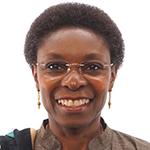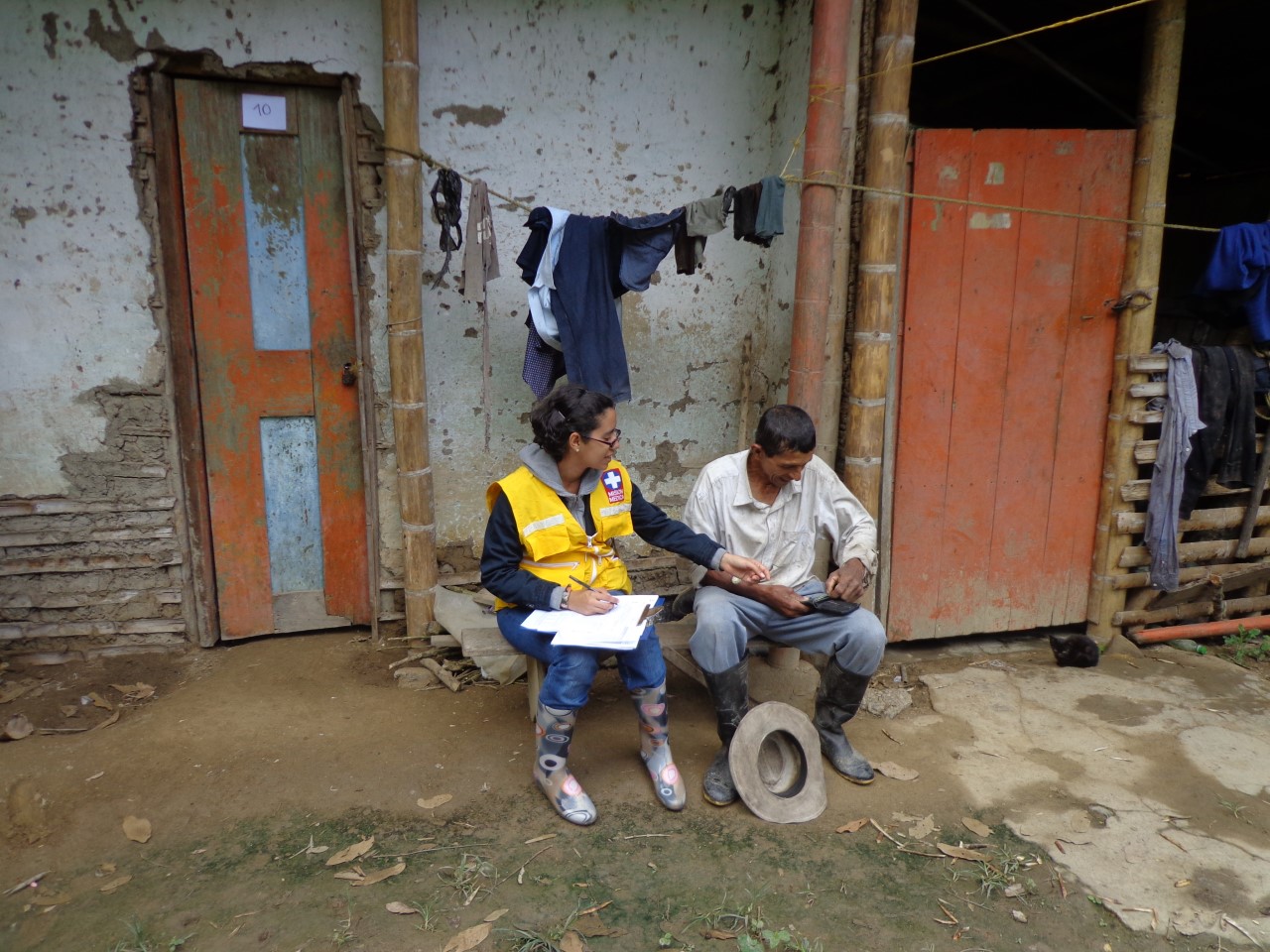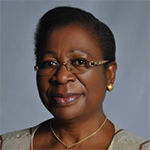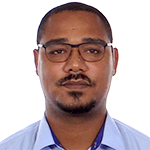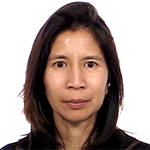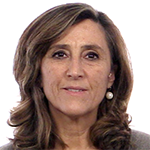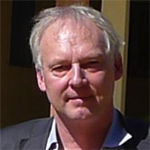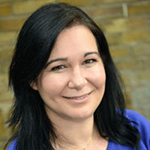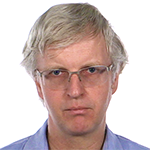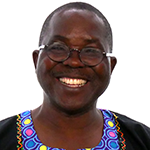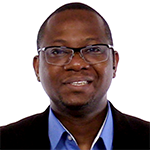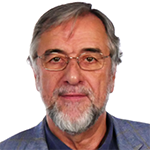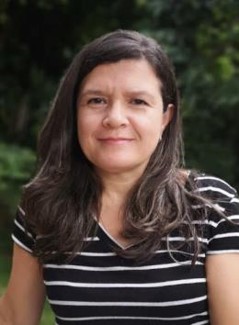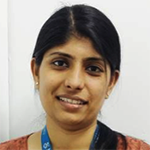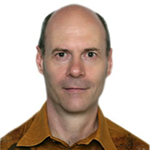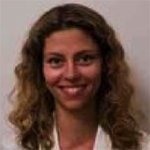Sobre este curso
Bienvenido al curso de TDR sobre Investigación de la Implementación
¿Qué es la Investigación de la Implementación?
TDR, el Programa Especial de Investigación y Entrenamiento en Enfermedades Tropicales, auspiciado por la Organización Mundial de la Salud, ha desarrollado este MOOC sobre Investigación de la Implementación basado en su larga experiencia en investigación para controlar las enfermedades infecciosas de la pobreza. En este curso, expertos de todo el mundo han compartido su experiencia de la vida real sobre cómo los proyectos de investigación de implementación han marcado una diferencia en la lucha contra enfermedades infecciosas como la malaria y la oncocercosis, a través de conferencias, videos, imágenes y análisis. Este curso tiene como objetivo demostrar el profundo impacto que la investigación de la implementación, llevada a cabo de manera exitosa, podría tener en la vida de millones de personas que padecen enfermedades infecciosas.
Bienvenido a este Curso abierto masivo en línea (MOOC) sobre investigación de la implementación, desarrollado por TDR, el Programa especial de investigación y entrenamiento en enfermedades tropicales, organizado por la Organización Mundial de la Salud. Existe una importante inversión en investigación para el desarrollo de herramientas e intervenciones para abordar algunos de los principales desafíos de salud pública, particularmente asociados a enfermedades de la pobreza. También existen planes de financiación para abordar estos grandes desafíos de nuestro tiempo, a través del desarrollo de vacunas y medicamentos y otras innovaciones para enfrentar las causas de enfermedad y mala salud.
Sin embargo, un desafío continuo, para el cual la evidencia actual sigue siendo escasa, es cómo garantizar que estas soluciones, herramientas, intervenciones, etc. lleguen a las personas que las necesitan, y se utilicen de una manera que produzcan el resultado para el cual están destinadas. En ausencia de estrategias de implementación efectivas, la utilidad de las soluciones, por lo demás efectivas, se ve severamente restringida. Y, sin embargo, la importancia de la investigación dela implementación a menudo se subestima y no se considera una parte central en las líneas de investigación.
Este MOOC brinda una oportunidad ideal para comprender la investigación de implementación con la expectativa de que al final del curso usted podrá diseñar sus propios proyectos de investigación de implementación, evaluar críticamente y utilizar la evidencia producida por otros proyectos de investigación de implementación y llevar a cabo proyectos de investigación de implementación robustamente diseñados, todo esto con el objetivo final de mejorar la evidencia disponible sobre formas efectivas de mejorar la salud de las poblaciones a las que servimos.
Lo que aprenderás
- conceptos básicos de investigación de la implementación
- cómo identificar los desafíos de varios contextos
- cómo evaluar la pertinencia de las estrategias de implementación existentes
- cómo desarrollar estrategias de implementación innovadoras y más efectivas trabajando con comunidades y múltiples partes interesadas
- cómo formular su pregunta de investigación de implementación, para poner en operación sus variables y diseñar proyectos de investigación rigurosos
- cómo definir los resultados de su investigación de implementación y evaluar la efectividad de sus estrategias de implementación y, por último,
- cómo planificar la ampliación de su intervención dada una sólida estrategia de implementación.
Course Staff
Pascale Allotey
Professor Pascale Allotey is the Director of the United Nations University International Institute for Global Health (UNU-IIGH) (https://unu.edu/experts/pascale-allotey.html). She has two decades of experience as a researcher in global health including multidisciplinary background, and experience working across four continents to promote health and well-being. Prior to joining UNU, Prof. Allotey served as Professor of Public Health and Deputy Head of School (Research and Development) at the Jeffrey Cheah School of Medicine and Health Sciences, Monash University (Malaysia). She also was head of the Global Public Health unit and founding Associate Director of the South East Asia Community Observatory (SEACO, Malaysia). Her previous experience includes Professor of Race, Diversity and Professional Practice, Brunel University (United Kingdom); Lecturer and Senior Research Fellow at the Key Centre for Women’s Health, WHO Collaborating Centre for Women’s Health, University of Melbourne (Australia); and Lecturer in the Tropical Health Program, Australian Centre for International and Tropic Disease and Nutrition, University of Queensland (Australia). She holds a PhD in Public Health and a MMedSci degree in Community Health from the University of Western Australia.
Uche Amazigo
Uche Amazigo is a professor and a retired Director of the African Programme for Onchocerciasis Control (2005-2011). She holds a PhD from Vienna University (Austria) and was a Takemi Fellow at the Harvard School of Public Health (USA). Professor Amazigo is a public health specialist and she has devoted most of her academic, public and international career to the control of neglected tropical diseases and community-led health and development programmes. Her pioneering discovery of the suffering, social isolation and disability caused by river blindness skin disease in Nigeria contributed to the creation of the World Health Organization African Programme for Onchocerciasis Control (WHO/APOC) in 1995. She is also the Founder and CEO of Pan-African Community Initiative on Education and Health (PACIEH), an NGO coordinating community-managed school health and feeding programme to improve primary education in resource poor settings. She has over 60 publications in international peer-reviewed journals.
Jorge Arroz
Jorge Arroz is a malaria specialist and medical doctor with 11 years of medical and public health experience in Mozambique at the central and provincial levels, including over three years of malaria programme management. He has published on epidemiological research on malaria, HIV/AIDS and neglected tropical diseases, and completed the continuing education training course “Malaria Prevention and Control for Africa” in 2011. He is currently a PhD Candidate in International Health at the Institute of Hygiene and Tropical Medicine, Universidade Nova de Lisboa, Lisbon, Portugal. He obtained an MPH from the Institute of Science and Technology of Mozambique (ISCTEM), Maputo, Mozambique, in 2013. He is currently the Malaria Project Senior Technical Manager for the Global Fund Malaria Control Programme and World Vision, Mozambique, Maputo, Mozambique. He oversees the implementation of malaria control activities in Gaza, Zambézia and Tete Provinces where he is managing LLIN (long lasting insecticidal net) distribution campaigns.
William Brieger
William “Bill” Brieger is a Certified Health Education Specialist and has a Doctorate in Public Health (DrPH) in International Health from the Johns Hopkins University (JHU) and a Masters in Public Health (MPH) in Health Behavior and Health Education from the University of North Carolina, Chapel Hill. He is a Professor in both the Health Systems and the Social and Behavioral Interventions Programs of the Department of International Health at the Johns Hopkins Bloomberg School of Public Health and also serves as Jhpiego’s Senior Malaria Specialist. Bill taught at the African Regional Health Education Center at the University of Ibadan, Nigeria, from 1976 to 2002. He is internationally renowned for his expertise in the social and behavioral aspects of disease control and prevention, with special emphasis on formative research and behavior change programme design and evaluation. A particular focus has been on training peer educators, community volunteers and other community resource persons to take an active role in health education and health service delivery. Professor Brieger has published more than 160 scientific articles focusing on the social and cultural aspects of disease control, training of community health workers, health systems strengthening and community participation strategies.
Vivian Go
Dr Vivian Go is an associate professor in the Department of Health Education at the University of North Carolina (UNC) Gillings School of Global Public Health. As a social epidemiologist, her research focuses on the design, implementation and evaluation of HIV interventions among marginalized populations in Asia. Vivian has worked for more than 15 years in Vietnam, where she has conducted a series of randomized controlled trials to assess the effectiveness of multi-level interventions to prevent HIV for people who inject drugs and to engage those who are HIV positive into the continuum of care. Her most recent interest is in the scale-up of evidence-based interventions into routine practice. Her team has established a permanent UNC office in Hanoi and two project offices in Thai Nguyen (40 miles north of Hanoi) staffed with nine full-time Vietnamese nationals who have been trained to conduct large research trials. UNC currently has active memorandums of understanding with the Hanoi School of Public Health and the Hanoi Medical School. Vietnam is a site for HPTN 074, “Integrated treatment and prevention for people who inject drugs: a vanguard study for a network-based randomized HIV prevention trial comparing an integrated intervention including supported antiretroviral therapy to the standard of care.” Dr. Go has involved many students and trainees in the studies in Vietnam, both to assist with ongoing studies and to conduct their own independent research.
Maria do Rosário Oliveira Martins
Maria do Rosário Oliveira Martins is Full Professor of Statistics and Deputy Director at the Institute of Hygiene and Tropical Medicine, NOVA University of Lisbon, Portugal. She is the coordinator of the eLearning Master degree Programme in Statistics for Health. She has also been a member of the NOVA General Council since 2009 and member of the board of the PhD Program in Global Public Health. She is a member of the National Ethical Committee for Clinical Research (CEIC), member of the Scientific Advisory Committee of the European and Developing Countries Clinical Trials Partnership (EDCTP) and WHO consultant for Health Information Systems (Health Observatory of the African Region). She coordinates the Lusophone Network for health professionals’ research financed by TDR. Maria do Rosário Oliveira Martins has been Pro-Rector of NOVA University of Lisbon, having implemented the NOVA eLearning Centre. She was Deputy Director of the Institute of Statistics and Management Information between 2000 and 2010, when she was also President of the Pedagogical Board. She is the author of four books and has published more than 50 papers in national and international scientific peer-reviewed journals.
Paul Milligan
Paul Milligan is an epidemiologist and biostatistician. He is Professor of Epidemiology and Medical Statistics in the Faculty of Epidemiology and Population Health at the London School of Hygiene and Tropical Medicine. He teaches courses on epidemiology, biostatistics, and the design and analysis of intervention studies. His main research is on strategies to prevent malaria and to reduce malaria transmission in West Africa. He has been a member of the WHO Malaria Vaccine Advisory Committee and the technical group that advised WHO on the public health role of the RTSS malaria vaccine, and he currently coordinates evaluation of the scale-up of seasonal malaria chemoprevention in West and Central Africa.
Dr Corinne Merle
Dr Corinne Merle is a scientist in the Intervention and Implementation research unit at the Special Programme for research and training in tropical diseases (TDR), World Health Organization (WHO), Geneva (CH). Dr Merle is a medical doctor from the Faculty of Medicine of Reims University (France) with a specialization in infectious diseases and in public health. She also holds a Master of Epidemiology and Statistics (Nancy, France) and a Master of Economics and Health Policy (Paris Sorbonne, France). She has been working in the field of infectious disease research for almost 20 years. She has been involved in various types of research conducted in different LMIC settings. She spent 10 years at the London School of Hygiene and Tropical Medicine where her main research areas were mainly on Tuberculosis, HIV and Malaria. Since October 2014, she has joined the Special Programme for Research and Training in Tropical Diseases (TDR) of the WHO were she has been focusing her research activities on implementation research related to interventions against infectious diseases of poverty.
Neal Alexander
Dr Neal Alexander is based in Cali, Colombia, and works there at CIDEIM (Centro Internacional de Entrenamiento e Investigaciones Médicas), as well as being affiliated with the London School of Hygiene and Tropical Medicine. He previously lived and worked in London (UK), Kaduna (Nigeria) and Goroka (Papua New Guinea). His first degree is in mathematics and his PhD on the epidemiology of lymphatic filariasis. His current work is focused on the development of interventions against vector-borne and parasitic diseases, in particular insecticide-treated materials against arbovirus vectors, and new drugs and drug combinations against leishmaniasis.
Oladele Akogun
Oladele Akogun is a professor of public health parasitology at the Modibbo Adama (formerly Federal) University of Technology, Yola, Nigeria. He contributed to the pioneering work on the epidemiology of onchocerciasis in Northeastern Nigeria in 1988 and has since been a major player in subsequent intervention research, system and individual capacity enhancement to address the onchocerciasis problem using community participatory approaches. He was a consultant to WHO/TDR and to the African Programme for Onchocerciasis Control (APOC) leading several monitoring and evaluation teams in Africa. His main research interest focuses on increasing access of marginalized communities to health interventions, for which he is a recipient of several research grants including the Bill and Melinda Gates Grand Challenges Exploration (GCE 2). He is a strong advocate of community participatory research and collaborative initiatives for addressing health problems. Professor Akogun has published more than 30 scientific articles in international peer-reviewed journals.
Olakunle Alonge
Dr. Olakunle Alonge is an Assistant Professor in the Health Systems Program, at the Department of International Health, Johns Hopkins Bloomberg School of Public Health in Baltimore, MD, USA. He received his MBBS degree from the University of Ibadan in Nigeria and completed his MPH degree in Biostatistics/Epidemiology and PhD in Health Systems at the Johns Hopkins University in Baltimore, MD, USA. He has broad interests in design and evaluation of health systems strengthening strategies, child injuries and implementation research. His area of expertise is in implementation science method, systems science and approaches for causal inference in complex health systems evaluation. His current research is focused on defining outcomes of implementation research and use of system methods to improve design and evaluation of health systems in low- and middle-income countries.
Hans Remme
Dr Hans Remme is an epidemiologist and biomathematician who has worked for over 35 years on research and control of tropical diseases, first in Africa at the University of Dar es Salaam in Tanzania and at the WHO’s Onchocerciasis Control Programme in West Africa and then with the WHO Special Programme for Research and Training in Tropical Diseases (TDR). His special interest is to use research to improve disease control. In TDR he was among other areas, coordinator of implementation research and manager of a research programme that produced the implementation research tools and strategies for the African Programme for Onchocerciasis Control (APOC). Following his retirement from WHO, he has continued to work as a consultant on implementation research and onchocerciasis elimination.
María Isabel Echavarría M.
María Isabel Echavarría is a Colombian microbiologist with an MPH in Global Health with emphasis in Leadership, Policy and Management from the University of Washington. She has experience working in the implementation of health programs with hospitals, local health agencies, and multinational companies as well as in public health research. Her current interests include participatory research and intersectoral collaboration to foster the integration of research results into practice and public policy. She works at CIDEIM (Centro Internacional de Entrenamiento e Investigaciones Médicas) in Cali, Colombia, coordinating the Implementation Research training program which seeks to strengthen this area of research in Latin America and the Caribbean. She also leads the SIHI-LAC Hub (Social innovation in health Hub for Latin America and the Caribbean), supported by TDR, with the aim of promoting and strengthening community-based initiatives that address health problems though research and capacity building.
Adanna Nwameme (Course manager)
Dr. Adanna Nwameme is a lecturer at the University of Ghana School of Public Health (UGSPH). She is a medical doctor with Masters and PhD degrees in Public Health. Strong considerations in her choice of research work include making innovative changes to existing practices especially in areas of Implementation Research, Gender and Health, Maternal Health and Ethics. Dr. Nwameme is involved in the development and implementation of different online training courses. Since October 2018, she has managed the IR MOOC sessions being run by the WHO/TDR assisted African Regional Training Centre (based in UGSPH) and currently oversees management of the MOOC sessions globally in all the WHO regions.
Devi Mohan (forum moderator)
Dr Devi Mohan is a Senior Lecturer in Global Public Health in Monash University Malaysia. She obtained her MD in Community Medicine from Kerala University of Health Sciences and MBBS from University of Kerala, India. She has worked extensively in the planning, development and implementation of various community based and health system projects. Her current research area is geriatric neuroepidemiology with focus on dementia and cognitive impairment. She is also actively involved as a research methodology trainer across medical and allied specialties, and also supervises higher degree graduate students in public health.
Daniel Reidpath (forum moderator)
Professor Daniel Reidpath has been a Public Health academic since 1997, although his disciplinary background was originally in Computer Science and Psychology. He is currently Professor of Population Health and Head of Public Health at Jeffrey Cheah School of Medicine and Health Sciences, Monash University Malaysia. He is also the Director of the South East Asia Community Observatory (SEACO), a Monash University Research Infrastructure Platform in Segamat, Johor, which tracks the health and wellbeing of 40,000 people.
Prof Reidpath has published widely including peer reviewed articles, book chapters, a journal special issue, commissioned reviews, and editorials. He has also published across a wide range of areas including medical sociology, public health, epidemiology, and biostatistics. He supervised to graduation several PhD and numerous Masters students. He has held research funds from the Ford Foundation, the Global Forum for Health Research, TDR/WHO, VicHealth, the Royal Society of Public Health, and the Wellcome Trust, most recently as co-Investigator of a grant to look at strategies to improve health outcomes in urban informal settlemnts. He has also acted as a research consultant for WHO, UNICEF, and Family Health International. He is an honorary fellow of the Royal Society for Public Heath (HFRSPH).
Bella Ross (forum moderator)
Dr Bella Ross is a lecturer with the Student Academic Support Unit at Monash University, Australia. Her current research interests include the use of educational technology in higher education, MOOCs, and education for health professional students.
Bella’s teaching career has spanned over ten years and has included a range of language and academic subjects. She has extensive experience developing research projects and has reported on her findings at Australian and international conferences and in peer-reviewed journals.
